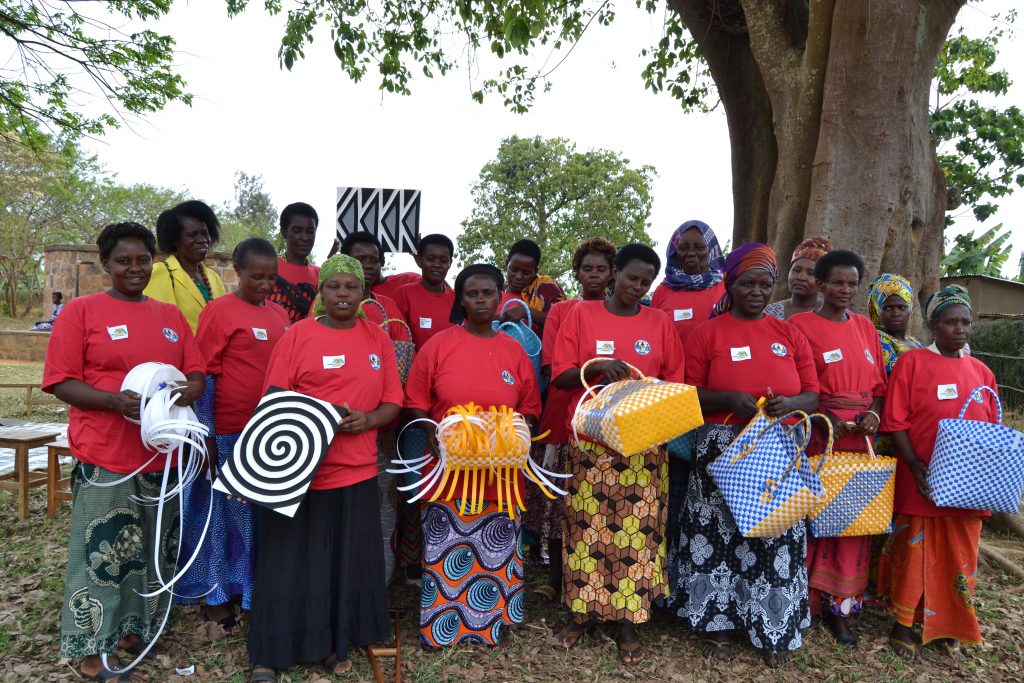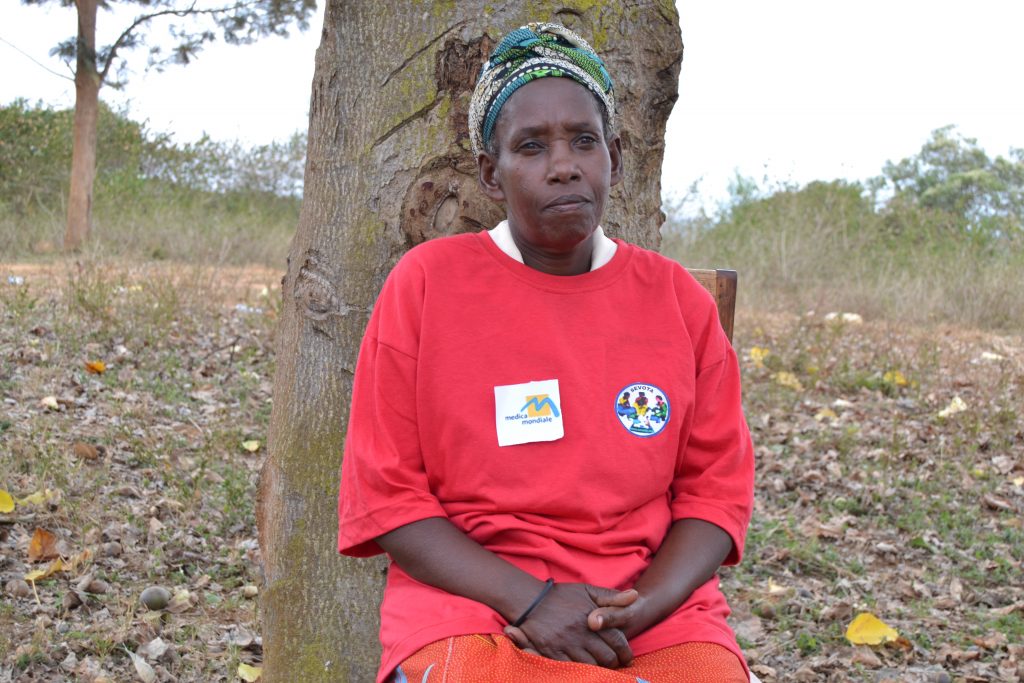A tale of miracles and how Medica Mondiale resurrected two Women

A group of women sat under Ficus Natalensis tree, chatting with a glance of smiles at each other as rays of the sun peered through leaves and brightened their foreheads smeared with petroleum jelly. They have a lot of things in common, not just weaving together but rather a burdened past that tormented their lives.
Rilima Sector in Bugesera district in the eastern part of Rwanda tends to have high temperatures during the dry season which has its pick between the months of July and August.
But tales of two women among the group are a testimony of miracles, Medica Mondiale’s hand that resurrected the two from the wrath of death.
Methilda was gang raped for a week during the 1994 Genocide against Tutsi, she had escaped her home in Rilima in the current Bugesera district after killers attacked their home.

“A gang of Killers (Genocidaires) attacked our home and killed my husband and five of our children, I escaped with two and relocated to my mother’s birth place in Rwamagana,” she narrated as tears flowed down her wrinkled cheeks.
Methilda says that upon arrival midday, she fell into a gang of killers who were on a killing spree in the area. “ one after another and in turns raped me day and night for a week, the only break I would get is when I would ask them to let me pray to God,” she said as she held her Kitenge to wipe her eyes.
After several days in coma, she says, she woke up in a house of her rescuer Habimana (not his real name) who was a family friend, a Hutu and a former doctor. “I can’t tell how I reached there, but at least I found myself in his house,” she said.
Methilda notes that her rescuer then helped her to clean up and have some food, but after some days that the killers attacked them and demanded Habimana to hand her over to them but refused.
It was not until some days that the gang came back to destroy Habimana’s house after they had been told that Methilda was still alive and with bad luck they met her as she was leaving the compound, this was the second time she was going to be raped.
“….and about 30 of them took me below the house and raped me, I became weak after them putting red pepper in my genitals, that’s when my spirit left my body,” she said.
She was found by Habimana after several days when maggots had started coming out of her genitals, “they would make a stream as they came out of my genitals, very stinking and awful, I didn’t know myself,” she said. She later found out she was pregnant.
Like Methilda, Peruth lost her husband and her five children in Rilima during 1994 Genocide against Tutsi and escaped with her three children to Nyamagabe then Gikongoro, a man who knew her family offered to give her accommodation and it was not until she raped her and took her up as a wife and the children were later killed by their relatives. She got pregnant. Peruth ran mad due to trauma which she stayed with even after the war, she could walk naked through the villages in Rilima, all hopes were overshadowed with misery, and death was her wish.

After the war, Methilda went back to Rilima with her newly born baby girl and two of her children that were rescued, she went through trauma with no food and housing for her children, she lost hope again.
Like an angel from heaven, the two women were identified in 2011 by SEVOTA, a local NGO that works towards restoring the lives of the victims of rape during the 1994 genocide against Tutsi as well as supporting their orphans.
“I thank Medica Mondiale which resurrected my life, I was dead living, they help me with treatment, bought clothing for me and took my child to school, it gave me a second chance to live,” Mukayiranga said.
Both Methilda and Peruth were put in the Abiyubaka mu Mahoro( building oneself through Peace) group of Rilima sector, Bugesera district which brings together rape victims of 1994 Genocide against Tutsi for the sector.
Godelieve Mukasarasi coordinator and founder of Sevota says most rape victims were left hopeless due to trauma as a result of what they encountered during the war and could not cope with life in the aftermath of war. Their children born of rape became yet another challenge to reckon.
“Most victims had lost hope of living, some had ran mad, others could not clean or wash or look for something to support themselves, they didn’t have hope, life meant nothing to them,” mukasarasi, who earned a prestigious award for her distinguished role in encountering challenges in the aftermath of the 1994 Genocide against Tutsi said.
Medica mondiale, an internationally renowned women’s rights and aid organization supports Sevota to organize the 1994 genocide against Tutsi victims of rape and their orphans in forums and then later in groups where women receive capacity building, trauma treatment and entrepreneurial training where they are able to start income generating activities.


